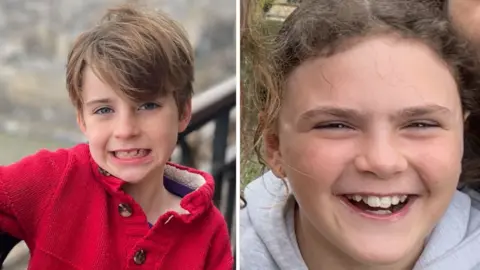The Trump administration is preparing to terminate tens of millions of dollars in grants that were designated for research into environmental risks affecting children, particularly in rural areas of the United States. Internal communications from senior officials at the Environmental Protection Agency (E.P.A.) reveal that this move is part of a broader effort to scale back the agency's core functions under President Trump’s directive.
The grants targeted for cancellation are intended to research various public health issues, such as the effects of pesticide exposure, the health risks posed by wildfire smoke, and efforts to mitigate "forever chemicals" that have infiltrated the food supply. An email written by Dan Coogan, a deputy assistant administrator at the E.P.A., indicates that the leadership has instructed staff to cancel all pending awards and terminate funding for a number of essential programs that include Science to Achieve Results (STAR) and People, Prosperity and the Planet (P3).
The STAR program has facilitated important environmental research, while the P3 program specifically supports college students in their endeavors to create innovative environmental solutions. For example, recent projects funded under P3 included the development of antiviral face masks from plastic waste and completely compostable packaging film, highlighting the diverse approaches to mitigating environmental issues.
The decision has raised concerns among scientists and health advocates regarding the potential ramifications for public health, particularly for vulnerable populations, and could delay critical research that seeks to address the environmental threats that affect children and families across the country.
The grants targeted for cancellation are intended to research various public health issues, such as the effects of pesticide exposure, the health risks posed by wildfire smoke, and efforts to mitigate "forever chemicals" that have infiltrated the food supply. An email written by Dan Coogan, a deputy assistant administrator at the E.P.A., indicates that the leadership has instructed staff to cancel all pending awards and terminate funding for a number of essential programs that include Science to Achieve Results (STAR) and People, Prosperity and the Planet (P3).
The STAR program has facilitated important environmental research, while the P3 program specifically supports college students in their endeavors to create innovative environmental solutions. For example, recent projects funded under P3 included the development of antiviral face masks from plastic waste and completely compostable packaging film, highlighting the diverse approaches to mitigating environmental issues.
The decision has raised concerns among scientists and health advocates regarding the potential ramifications for public health, particularly for vulnerable populations, and could delay critical research that seeks to address the environmental threats that affect children and families across the country.




















